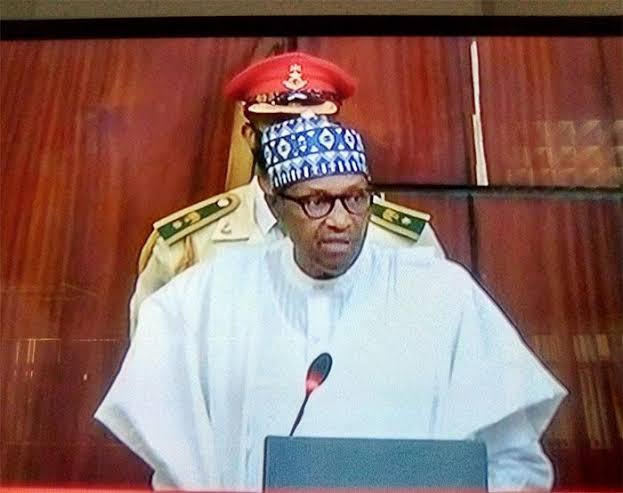
Why I signed Business Facilitation Bill into Law – Buhari
President Muhammadu Buhari has declared that for any economy to grow and create jobs, an equally vibrant and successful small and medium enterprise sector was also needed, adding that it was for this reason that he recently signed the Business Facilitation Bill into law.
President Buhari spoke at State House, Abuja, on Thursday as he received the Governing Council and members of the Institute of Directors led by its President and Chairman, Dr. Mrs Ije Jidenma.
“I was particularly interested to learn that you not only cater to large corporates, but are aware that for any economy to grow and create jobs, we need an equally vibrant and successful small and medium enterprise sector.
“This administration has, despite the difficult times brought upon us by a variety of external shocks, done much to ensure survival and development of SMEs.
Also Read: Naira redesign implemention failure and its consequences
“It is also my pleasure to share with you that your visit comes just a month after I signed into law the Business Facilitation Bill which eases various constraints for micro, small and medium sized enterprises. I am confident that this act will go some way in improving our business environment especially for the MSME’s,” said the President.
President Buhari while congratulating the Institute on attaining the milestone of 40 years, noted its commitment to nation building, stressing the values of transparency and good business ethics. He urged all stakeholders to recognise the noble roles that the Institute can play in the provision of the support base for the development of the economy.
“Let me congratulate the Institute on attaining this very important milestone of 40 years in existence. This is certainly a proud moment not just for the Institute, but for the nation as it signifies your commitment towards the objective of improved corporate governance, ethical business practices, improved corporate governance and transparency.
“These values are not just important pillars in the private sphere. They are also the keys to success in governance in the public sector, where the people have handed to us in trust, the responsibility to lead, guide and protect them.
“As our economy and conversely our private sector continues to grow and evolve, it behooves all stakeholders to recognize that such a resourceful institution not only exists, but is equipped and capable of providing the necessary support and development for the country.”
In her remarks, Dr. Jidenma noted that the reforms executed in various sectors of the Nigerian economy in the past eight years have increased expectations on the performance of business leaders and boards of public sector organisations.
This, the President of the Council noted, has made the Institute poised to sustain its leadership role in the orientation and capacity development for these Directors so that they can deliver on the mandates given to them.
Dr Jidenma stated that the Institute had gained insights on areas that needed further action towards being ‘Chartered,’ and having interfaced with the National Assembly and relevant stakeholders, requested for the President’s kind consideration and assent when the Bill gets transmitted to him.
